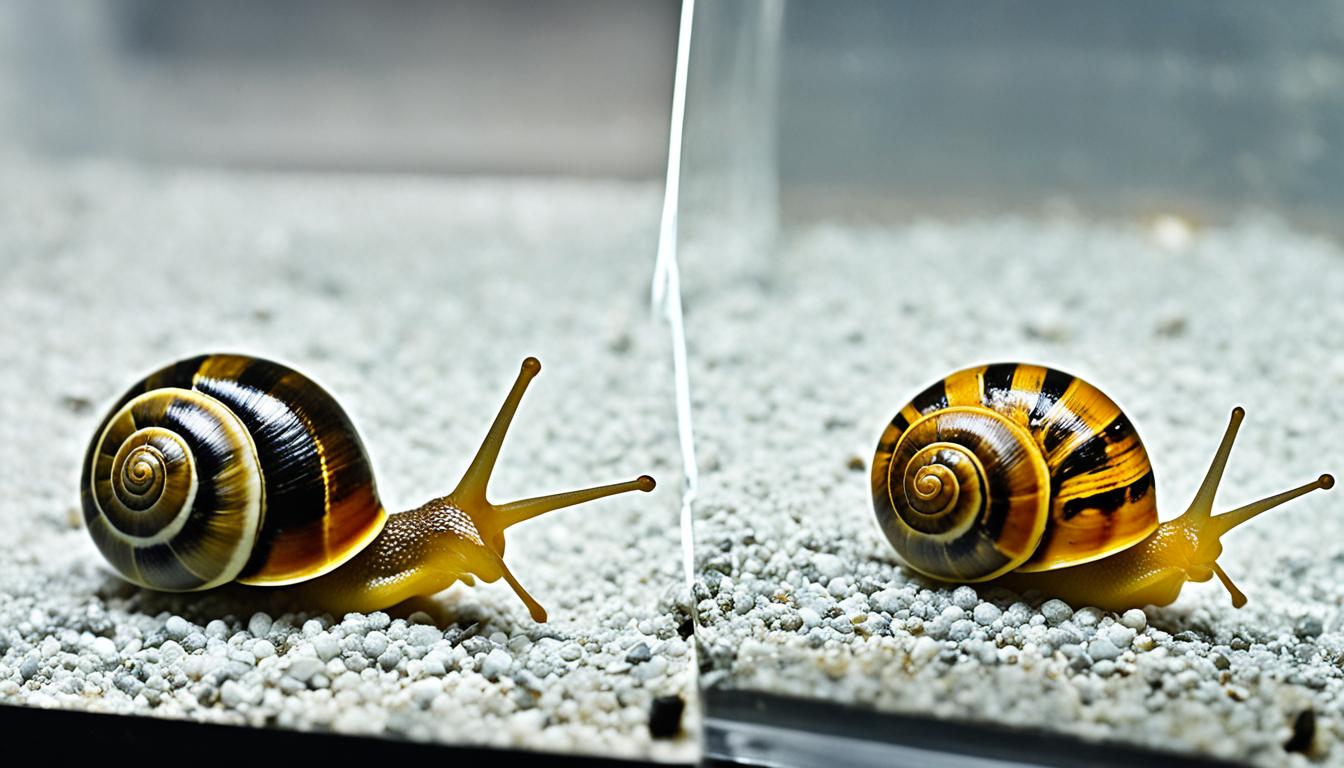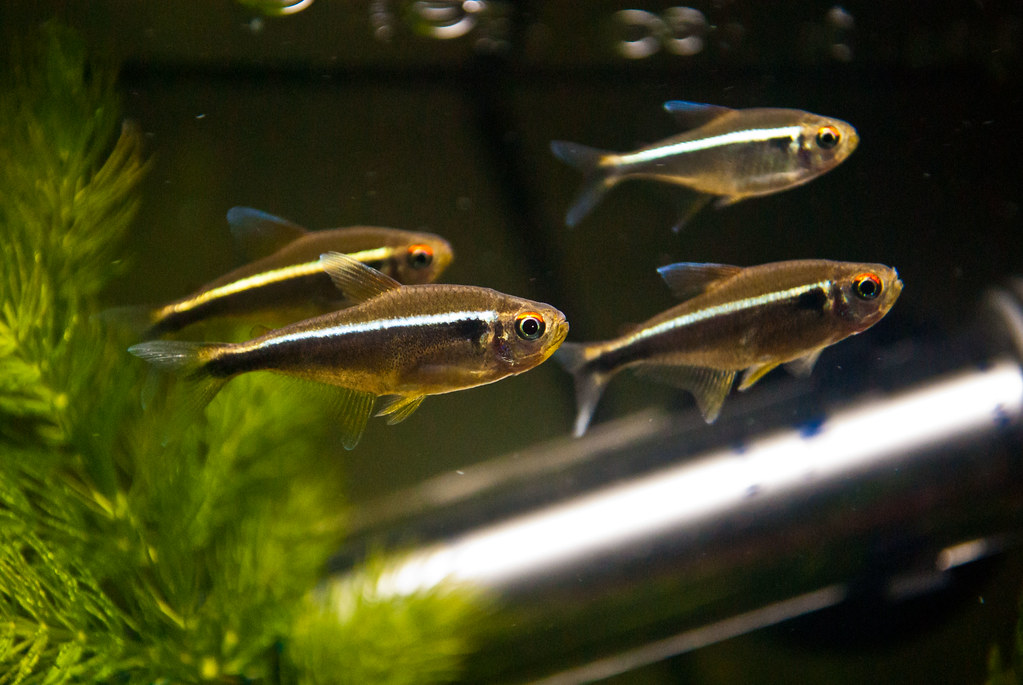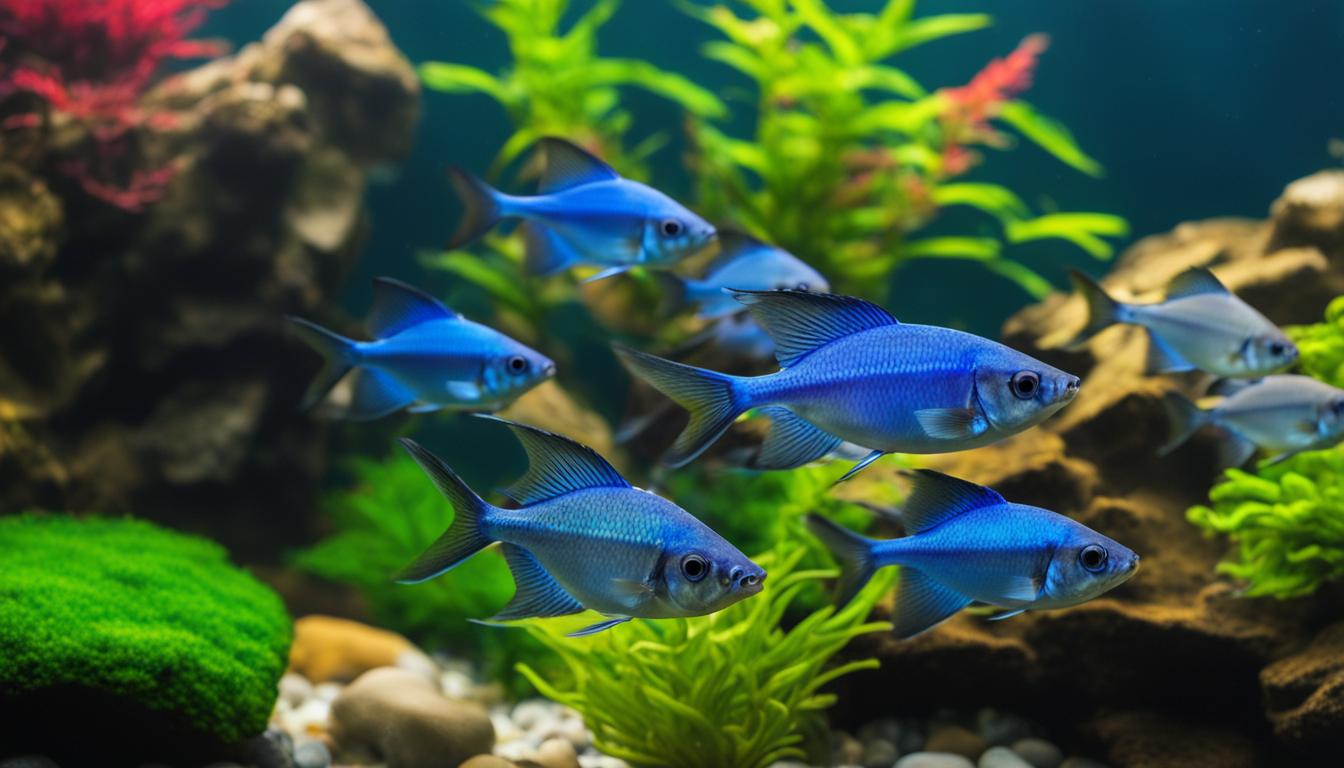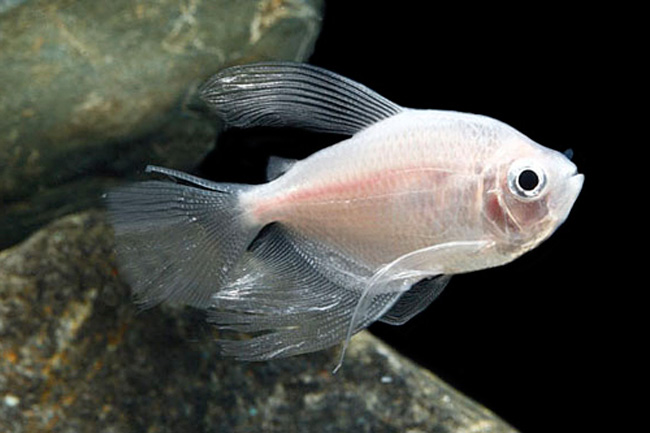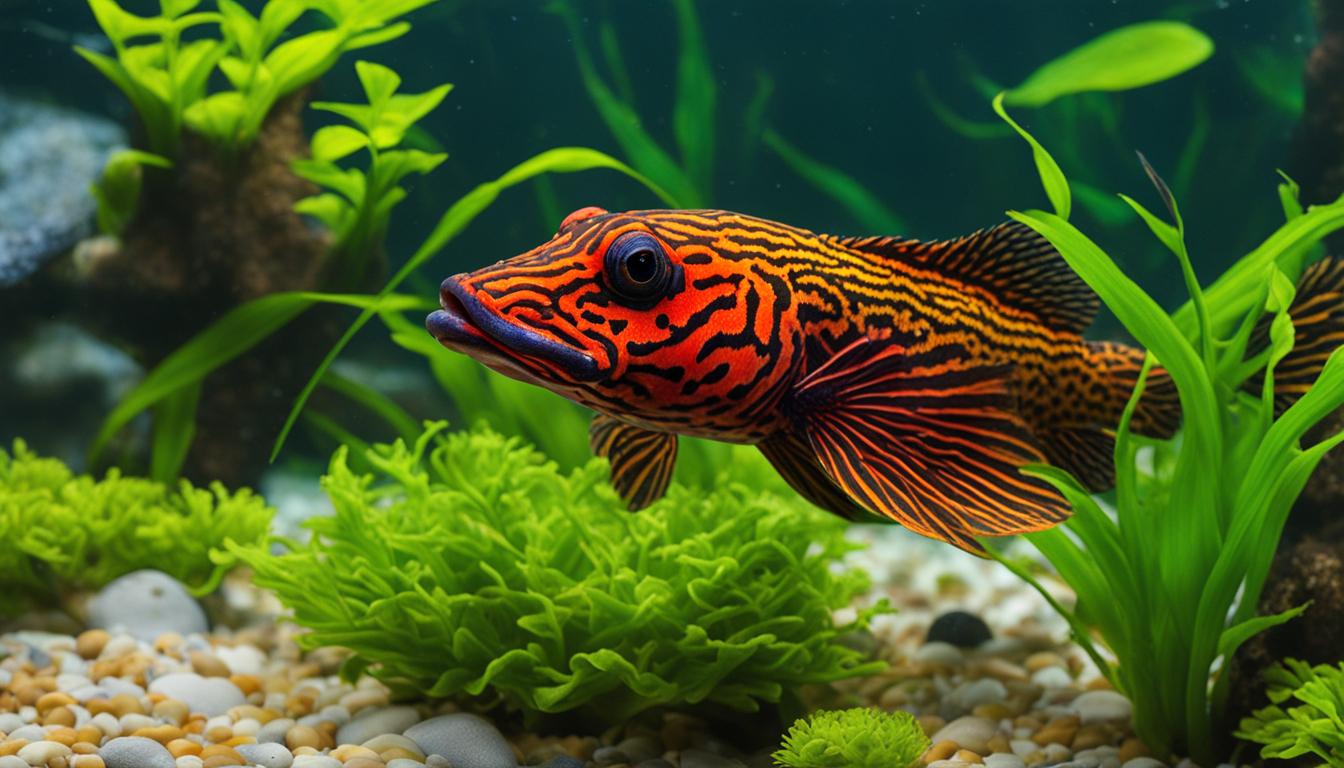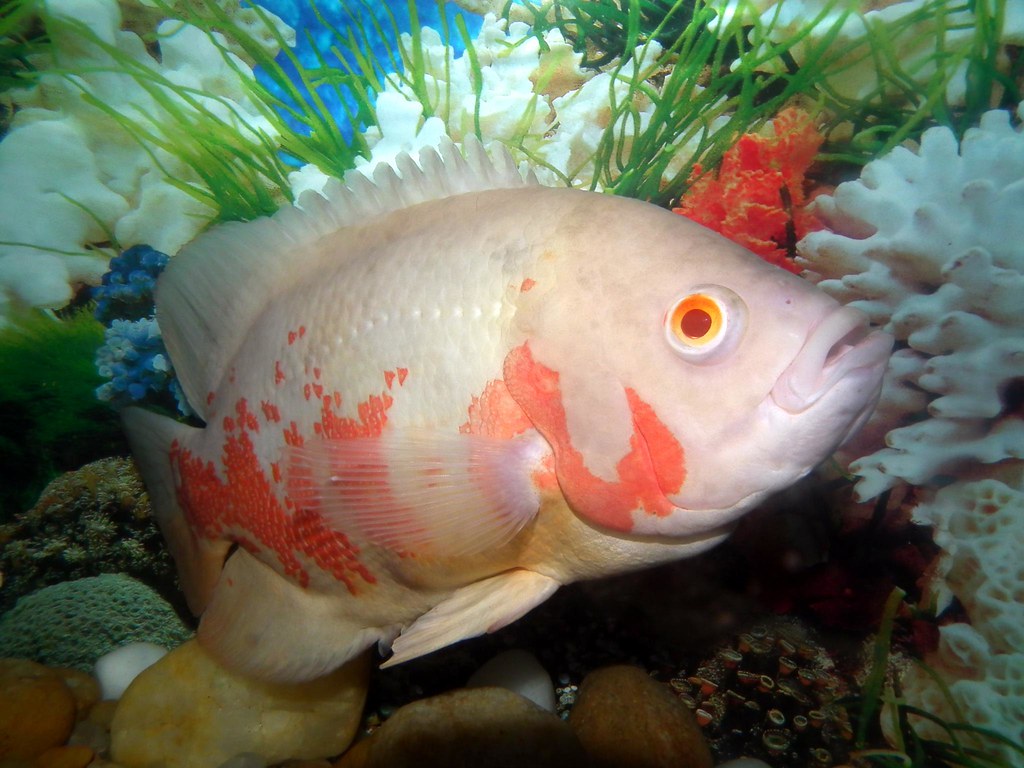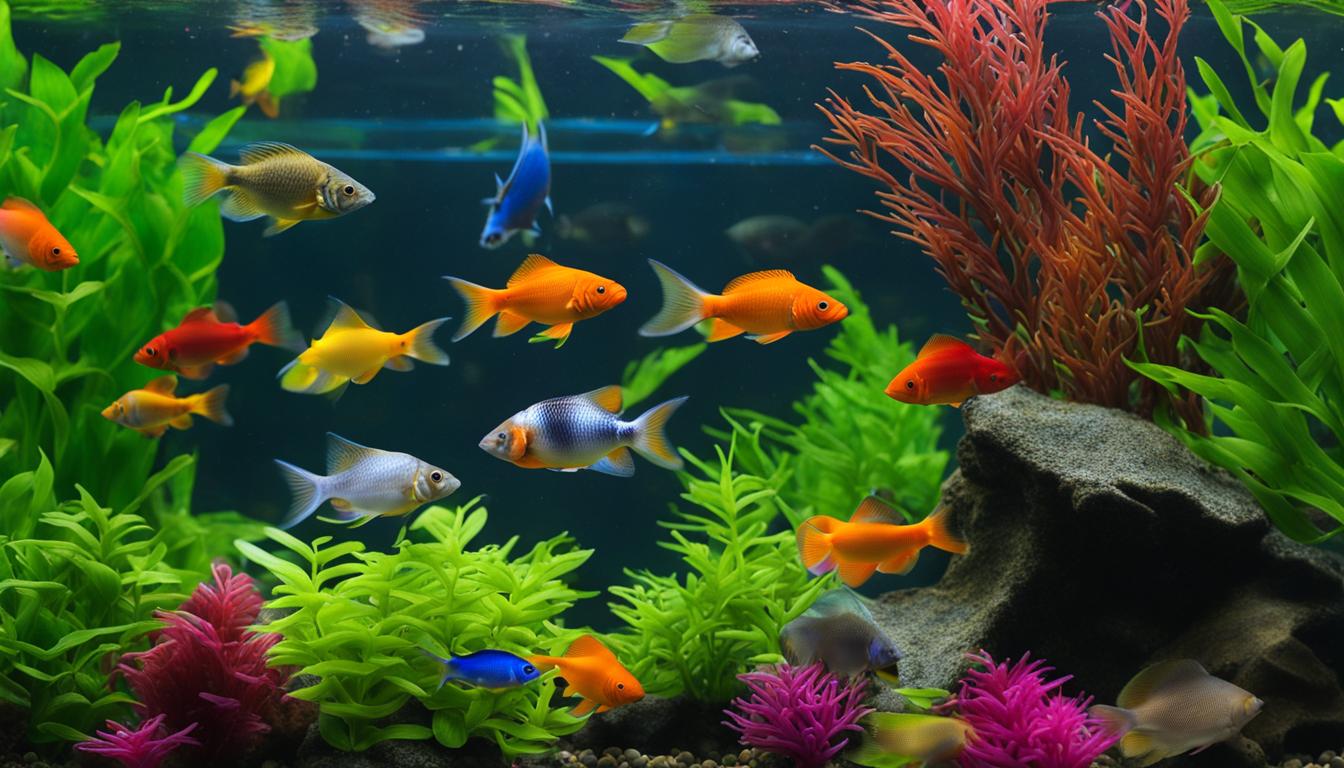How Long Can Mystery Snails Go Without Food? : Mystery snails are fascinating because they can live weeks or months without food. They usually eat plants. But they can store energy in their foot. This organ is not just for moving. It helps them last long periods without eating.
This skill shows how tough and flexible mystery snails are. They can survive a long time without food. Yet, feeding them regularly is key to keeping them healthy.
Table of Contents
How Long Can Mystery Snails Go Without Food?: Key Takeaways
- Mystery snails can survive without food for weeks or even months due to their energy-storing capability in their foot.
- Regular feeding is crucial to maintain the overall health of mystery snails.
- Mystery snails primarily rely on plant matter for nutrition and are known for their herbivorous feeding habits.
- Proper care, including a suitable environment and adequate feeding, is essential to keep mystery snails healthy and thriving.
- Offering a variety of high-quality foods, such as sinking pellets and algae wafers, ensures a well-rounded diet for mystery snails.
Mystery Snail Feeding Habits
Mystery snails like to eat different plant foods. They enjoy algae, biofilm, and old plant bits. Using a special tool called a radula, they graze surfaces to feed. They use the radula to scrape and eat, getting vital nutrients from their food.
These snails help keep aquariums clean. They eat leftover fish food and dead plants. This makes them great for keeping the tank clean and balanced.
It’s important to feed them regularly for their health. Though they can go without food for a while, they do best with consistent meals. A healthy diet helps them grow and keeps their shells strong.
Dietary Recommendations for Mystery Snails
Give them a mix of plant foods to keep them happy and healthy. Some good choices include:
- Algae wafers: These are special pellets that sink, making them perfect snail food.
- Blanched vegetables: Soften cucumbers, zucchini, and lettuce by blanching them. This makes them easier to digest.
- Calcium-rich foods: Calcium keeps their shells healthy. Use cuttlebone or supplements for this.
- Biofilm and algae: Letting some algae grow gives them a natural food source to graze on.
To keep their diet good, offer these foods in combination. Be careful not to overfeed, as it can harm water quality. Watch how they eat and adjust food amounts to keep their environment healthy.
| Key Points | Feeding Habits |
|---|---|
| Primary Diet | Various types of plant matter, algae, biofilm, decaying plant material |
| Feeding Organ | Radula – specialized feeding organ for scraping off and consuming food |
| Additional Food Sources | Uneaten fish food, dead plant bits |
| Optimal Feeding Schedule | Regular and consistent feeding routine to ensure long-term health |
| Recommended Foods | Sinking pellets, blanched vegetables, calcium-rich foods, biofilm, algae |
| Feeding Tips | Observe feeding patterns, avoid overfeeding, and maintain water quality |
Tips for Keeping Mystery Snails Healthy
To ensure your mystery snails stay healthy, create a good home and care for them well. Here’s how to keep them happy:
- Regular feeding: Mystery snails eat mostly plants. It’s vital to feed them a mix of algae, biofilm, and old plant bits. You can also give them special sinking pellets or algae wafers to keep them healthy.
- Water quality: Good water is key for mystery snails. They don’t like dirty water. Make sure to check water for ammonia, nitrite, and nitrate often. Keep your tank clean and the water fresh to avoid any toxins.
- Proper tank setup: Mystery snails need the right home to do well. Make sure your tank is big enough for all your snails. They like to have lots of room. Also, keep the water between 72-82°F (22-28°C) for their comfort.
- Moderate lighting: These snails don’t like bright lights. Too much light can stress them and make algae grow too much. Use soft or indirect light to make them feel at ease.
- Supplementing calcium: Snails need calcium for strong shells. If they don’t get enough, their shells can get weak. Give them calcium-rich foods or supplements often to keep their shells hard.
Follow these steps for happy mystery snails. Feed them right, keep their water clean, make their home comfy, control the light, and give them lots of calcium. These actions will keep them thriving in their water world.
Best Food for Mystery Snails
Mystery snails need food rich in nutrients for their health and shell growth. Feed them these options:
- Sinking Pellets: A top choice for snails. These pellets meet their nutritional needs. Ensure they are high in calcium and vitamins.
- Algae Wafers: Great for snails. Made from algae, they cater to herbivorous eating habits of snails.
- Calcium-Rich Foods: Snails need calcium for strong shells. Add cuttlefish bone or specific calcium supplements to their diet.
Pick top-quality snail food brands. Avoid those with harmful additives.
For a balanced diet, mix up their food. Give them blanched veggies like spinach or zucchini for extra nutrients and fiber.
Watch how your snails eat and adjust food types and amounts. A good diet ensures healthy, happy mystery snails.
Feeding Tips for Mystery Snails
Feeding your mystery snails the right way is crucial. These tips will help them get the nutrition they need. This way, they will grow strong and healthy.
1. Offer a Balanced Diet
Mystery snails mostly eat plants. Their diet should have algae, biofilm, and dead plants for nutrients. You can also give them sinking pellets or algae wafers to eat.
2. Avoid Overfeeding
Don’t feed your snails too much. Too much food leads to waste and bad water in the tank. Give them small portions. Make sure they finish their food in a few hours.
3. Keep the Tank Clean
Mystery snails clean the tank, but you must also do your part. Clean your tank regularly. Remove leftover food and debris to keep the water safe.
4. Provide Calcium-Rich Foods
Calcium helps in making strong shells for the snails. Feed them foods like cooked spinach, kale, or zucchini. Or give them calcium supplements made for snails.
5. Feed Regularly
Feeding your snails at the same time every day is important. This keeps them healthy. You can feed them daily or every other day.
These feeding tips make sure your mystery snails get everything they need. This way, they’ll stay healthy and grow well.
Maintaining Water Quality for Mystery Snails
Keeping mystery snails healthy is all about good water quality. This quality deeply affects their health and living conditions. Let’s look at what you need to care for in water:
-
Ammonia and Nitrate Levels: Mystery snails don’t do well with ammonia and nitrate. High amounts can be harmful or even deadly. It’s important to test the water often. This way, you keep these levels low. Changing the water regularly also helps keep the water clean.
-
pH Balance: These snails like their water a bit alkaline, from 7.6 to 8.4 pH. If this changes, they get stressed and their health suffers. Keeping an eye on pH and adjusting when needed is critical for their happiness.
-
Temperature: Sudden temperature changes are bad for mystery snails. They need the water temperature to be stable. The best range is between 75 to 82 degrees Fahrenheit (24 to 28 degrees Celsius). Use a reliable heater and check the temperature to keep them comfortable.
-
Filtration System: A good filter keeps the water clean for mystery snails. It removes harmful substances and keeps the environment healthy. Make sure to clean or change the filter regularly to keep it working well.
-
Water Hardness and Calcium: Snails need calcium to grow strong shells. The right water hardness and extra calcium sources are necessary. This stops their shells from getting weak and keeps them growing right.
Focus on these factors for top-notch water quality and a happy home for your mystery snails. Always check the water and adjust things as needed. This way, your snails will thrive.
Water Quality Parameters for Mystery Snails
| Parameter | Ideal Range |
|---|---|
| Ammonia | 0 ppm |
| Nitrate | Under 20 ppm |
| pH | 7.6 – 8.4 |
| Temperature | 75°F – 82°F (24°C – 28°C) |
| Hardness | 150 – 300 ppm |
Mystery Snail Tankmates
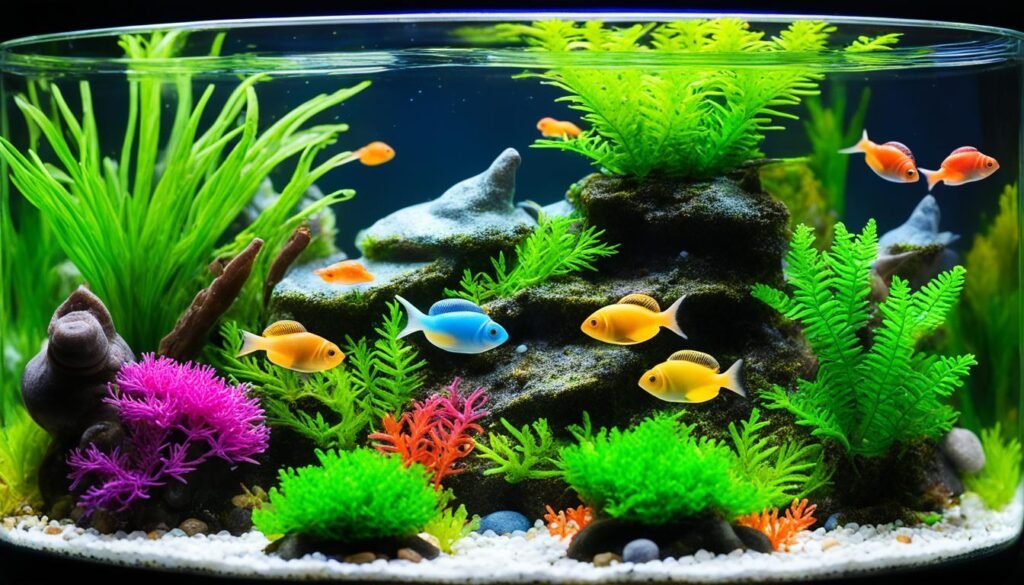
Mystery snails are incredible pets that can live calmly with various tankmates. But, picking the right friends is key to keep them safe and stress-free. Here’s a list of good friends for mystery snails:
- Tetras: Kind and lively, tetras are a great pick for living with mystery snails. They are colorful and come in many sizes, making your tank look lively.
- Guppies: These little, colorful fish are very peaceful. They match well with mystery snails. They do best in clean tanks and make a great part of your fish family.
- Corydoras Catfish: These fish like to stay at the bottom and are a good match for mystery snails. They clean the tank by eating leftover food from the bottom.
- Shrimp: Amano shrimp and cherry shrimp are calm friends that can live with mystery snails. They eat algae and help keep the tank clean.
- Mystery Snail Varieties: Having more than one mystery snail is okay if there’s enough room and food. They can live well together.
When adding new friends, watch how they act to make sure they don’t harm the mystery snails. Creating a balanced and safe home for everyone in your tank is very important for their health.
The Invasive Nature of Mystery Snails
Mystery snails, especially the golden mystery snail (Pomacea diffusa), are a problem in places like Florida. For aquarium lovers, it’s important to know how they can harm local waters.
Mystery snails eat a lot of plants in the water. This can change the ecosystem and hurt its balance. When they eat too much vegetation, it makes habitats worse and reduces the variety of life.
These snails also reproduce quickly. This can lead to too many snails, which harms other water creatures by taking their food and space. This can disturb the natural order and put many aquatic lives at risk.
If you own mystery snails, be careful not to let them out into nature. Make sure your aquarium is well sealed. If you need to move your snails, find them a new home with someone who knows how to care for them or take them back to a store that knows about fish.
Understanding the problems mystery snails cause helps protect our water ecosystems. We can keep nature in balance by acting responsibly.
| Effects of Mystery Snails as Invasive Species | Impacted Ecosystem |
|---|---|
| Disruption of native plant life | Aquatic habitats and wetlands |
| Loss of biodiversity | Native flora and fauna |
| Competition for resources | Native aquatic organisms |
| Altered ecological balance | Aquatic ecosystems |
Average Lifespan of Mystery Snails

Mystery snails live up to two years. Their care impacts their lifespan. This includes water temperature and care quality.
Water temperature affects their life. If kept between 70-80°F (21-27°C), their life may shorten due to faster metabolism. Cooler waters might extend their life but slow down their breeding.
Good care is key for mystery snails. This means clean water, a balanced diet, and a great living space.
Keep the water clean for healthy snails. Test the water regularly. Keep ammonia, nitrite, nitrate, pH, and hardness levels right.
Feed them well for a long life. Use top-quality foods like sinking pellets and algae wafers. Adding blanched veggies or calcium supports their health.
Create a good home with hiding spots and proper water flow and light. This lowers stress and helps them act naturally.
Every mystery snail is different. Giving great care, checking the water, and feeding them well supports a happy life.
| Factors | Effect on Lifespan |
|---|---|
| Water temperature | Higher temperatures may result in a shorter lifespan due to increased metabolism. Lower temperatures may lead to a longer lifespan but slower breeding rates. |
| Water quality | Optimal water quality helps prevent stress and ensures the overall health of mystery snails, leading to a potentially longer lifespan. |
| Diet and nutrition | A balanced and nutritious diet is crucial for the well-being and longevity of mystery snails. |
| Environmental conditions | Providing a suitable environment with adequate hiding spaces, water flow, and lighting conditions promotes natural behavior and can contribute to a longer lifespan. |
Identifying a Dead Mystery Snail
Mystery snails often stop moving for days with their operculum closed. This is normal and shouldn’t worry you. But, if you think a snail might be dead, there’s an easy way to check. Lift the snail and smell it. A bad smell means the snail has died. Also, if the snail looks dry after leaving the tank, put it back in water. Snails can live outside water for some time.
If you’re unsure about a mystery snail’s health, it’s best to be careful. Follow these steps to make sure it’s okay. By being watchful, you can care for your snails and keep your aquarium healthy.
If you’d like to know more about mystery snail feeding habits and care tips, please read on to the next section.
Mystery Snail Behavior and Adaptations
Mystery snails are intriguing with unique behaviors that make them stand out. They need specific care and an ideal environment, which is essential for hobbyists to understand.
Mystery Snail Behavior
Mystery snails display behaviors that are fascinating to observe. Let’s dive into the key behaviors of these snails:
- Exploration: Known for their curiosity, mystery snails love to explore. They often move along aquarium walls and inspect various objects in their tank.
- Feeding: They eat by scraping algae, biofilm, and decaying plant matter with a radula. Mystery snails help keep the tank clean by eating leftovers and dead plants.
- Mating: They have a unique romance, involving a dance before mating. This dance is an intriguing courtship ritual.
- Resting and Hiding: These snails take rests, staying still with their operculum shut. This lets them save energy.
- Activity Patterns: Mostly active in daylight, their activity increases with light. They might also be active at night, especially when breeding or if startled.
Mystery Snail Adaptations
Mystery snails possess adaptations that allow them to thrive in various settings. These include:
- Gill Adaptation: With both a lung and gill, they can breathe in water and air. This helps them in diverse water conditions.
- Shell Formation: They can fix and grow their shells, thanks to the calcium in their diet. This keeps their shells strong.
- Egg Clutch Protection: They lay eggs in jelly-like clutches away from water, protecting them from predators. This ensures their young’s survival.
- Foot Energy Storage: They store energy in their foot, helping them during food shortages. This survival skill is crucial for their survival.
Understanding their behavior and adaptations makes us appreciate mystery snails more. By meeting their needs, we can keep them healthy and happy in our aquariums.
| Behavior | Adaptation |
|---|---|
| Exploration | Gill Adaptation |
| Feeding | Shell Formation |
| Mating | Egg Clutch Protection |
| Resting and Hiding | Foot Energy Storage |
| Activity Patterns |
Conclusion
Mystery snails are amazing creatures that can go without food for a long time. They store energy in their foot. This lets them survive weeks or months without eating. But, feeding them right keeps them healthy and happy. Give them a mix of sinking pellets, algae wafers, and foods rich in calcium. This mix gives them what they need to grow well and have strong shells.
It’s also key to keep the water they live in clean. The water must be clear, have lots of oxygen, and be free of harmful chemicals. Doing regular water changes and checking the water’s health are good practices. This makes sure your snails have a safe place to live.
Choosing the right friends for your mystery snails matters too. Pick tankmates that are friendly and won’t bother your snails. A peaceful tank means your snails can live without stress. This helps them do well.
Follow these tips to take good care of your mystery snails. Feed them right, keep their home clean, and choose their tankmates wisely. Doing these things will make your snails happy and healthy. You’ll enjoy watching them in your aquarium.
FAQ
How long can mystery snails go without food?
What are the feeding habits of mystery snails?
What is the optimal feeding schedule for mystery snails?
How can I keep my mystery snails healthy?
What is the best food for mystery snails?
What are some feeding tips for mystery snails?
How can I maintain water quality for my mystery snails?
What are suitable tankmates for mystery snails?
Are mystery snails considered invasive species?
What is the average lifespan of mystery snails?
How can I tell if a mystery snail is dead?
What are some noteworthy behaviors and adaptations of mystery snails?
References
- International Federation of Online Clubs and Aquatic Societies (IFOCAS)
- Federation of British Aquatic Societies (FBAS)
- Northeast Council of Aquarium Societies (NEC)
- Federation of American Aquarium Societies (FAAS)
- Ornamental Aquatic Trade Association (OATA)
I am a passionate aquarist with over 30 years of hands-on experience in fishkeeping. My journey began at a young age, collecting fish from the wild and learning through experimentation. Specializing in tropical fish, I bring a deep understanding of the hobby to FishKeepingMadeSimple. The site provides honest, detailed reviews of essential products and accessories to help fellow enthusiasts create the best environments for their fish.

